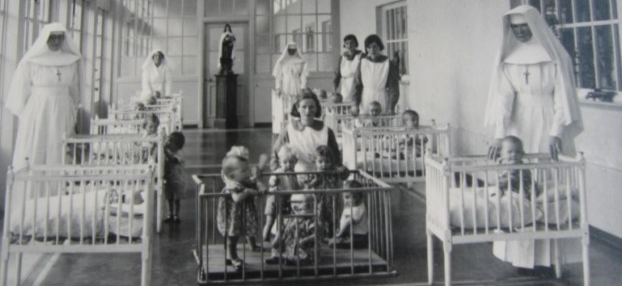Culture Profile: Ireland
Guest blogger Roy Angle has lived and worked in Dublin, Ireland for 12 years. Though it may surprise people, honor and shame play unique roles in Irish culture, due in part to Ireland’s Latin roots.
 What does honor and shame look like in your context?
What does honor and shame look like in your context?
In the past decade Ireland has made international headlines with reports of religious institutions abusing women and children. From the 1930’s to the early 1990’s approximately 35,000 children and young adults who were “socially abnormal” were sent to a network of 250 church-managed institutions. Unwed mothers were hidden away by their families in places such as laundry houses and forced to put their children up for adoption, due to shame. Children in orphanages and industrial schools were sometimes abused by priests and officials. Mothers and their children lived and died in this culture of shame and silence for decades. Most of these acts were done in secret and kept out of public knowledge both by the community and the Church. The revelation of these Church scandals in official reports was a “catalogue of shame” for Irish people.
Coinciding with its economic crisis of 2008, the country felt national shame before the international community. Two Irish proverbs are:
- “He who loses his reputation, loses his shame”
- “Better is the trouble that follows death than the trouble that follows shame.”
What is a local word that captures honor-shame values?
“Slagging” is Irish slang meaning “to make fun of.” It has to do with keeping one within the social norms of the group and functions as a reminder to “get back in line.” For example: “She’s been slagging me off behind my back again.”
What is the cultural orientation of Irish culture from TheCultureTest.com?
52% guilt, 43% shame, and 5% fear, based on the results of 5 nationals and 5 expats.
An honor-shame story?
At the end of last school year there was an incident at our kids’ local school when the whole 6th year class was expelled for the final three days of class. There was an uproar by parents claiming that the innocent were charged along with the guilty in such a decision. Protests were filed, letters written, committees formed, and threats ensued, but things apparently died down. At the beginning of the next school term, it became evident that the incident had not been forgotten. Parents for several weeks lined the street leading to the school and held signs to inflict maximum retribution. The signs read: “Shame on you, Mr. ___”. 
What are some ways you have attempted to address honor and shame biblically and redemptively?
I have been trying to initiate a wider conversation with Irish counterparts on the topic by getting feedback on a class paper I wrote “Honor-Shame in Irish Missiology.” Honor-shame as a salvific aspect of the gospel is a newly considered one. But recently an Irish student at the Irish Bible Institute, after reading this paper, told me, with deep emotion, that now she understood why verses of various hymns that spoke of Christ’s cure for shame resonated so deeply with her. But I am also learning and practicing to share the gospel from an honor-shame perspective. I find that overcoming the default setting of a law-guilt gospel such as the Romans Road or the Four Spiritual Laws can be difficult.
What advice (related to honor-shame) would you give newcomers to Ireland?
Be an insatiable learner of the gospel in all of its riches and robust beauty as the Scripture reveals, and learn how to live it and communicate it well. Christians often view contextualization as knowing the variances in the recipient culture to which one brings “the” gospel. This posture is to presume that the gospel message we bring is objective, acultural. But in reality, we bring a contextualized gospel born of our own theological and church background. Be continual learners of two basic elements in cross-cultural missions—gospel and culture. For it is the interface of gospel and culture that defines mission.
Previous posts:

Please add a culture profile for Indonesia. Thanks.